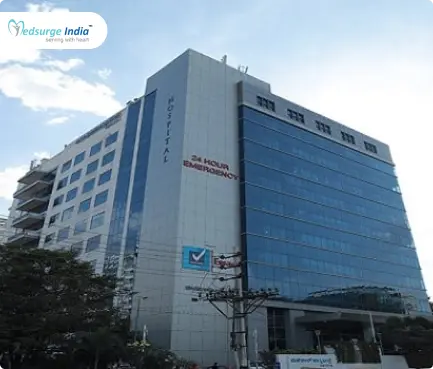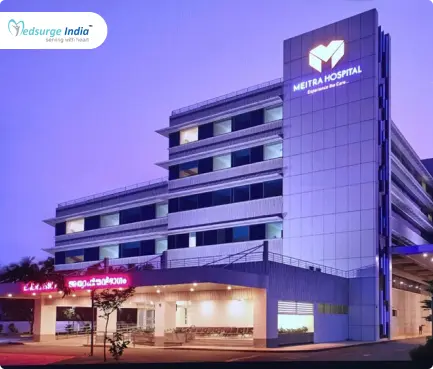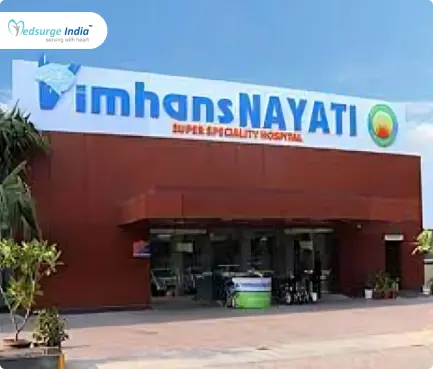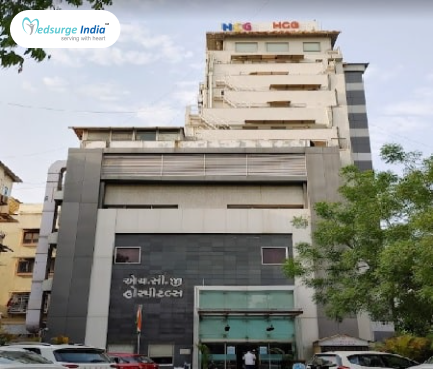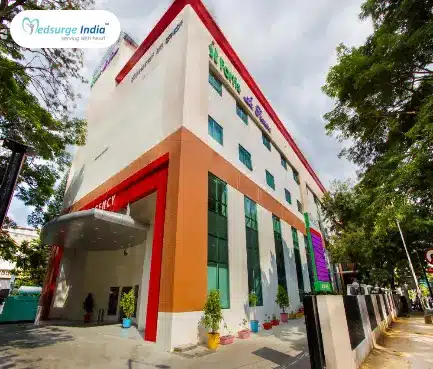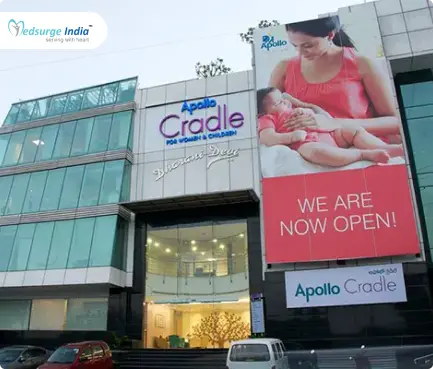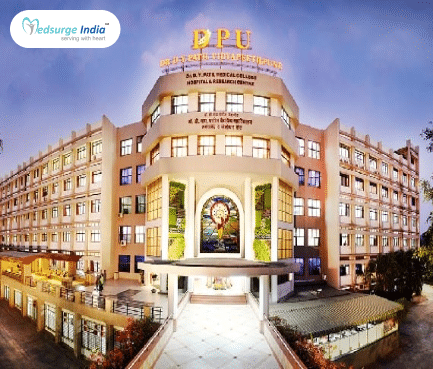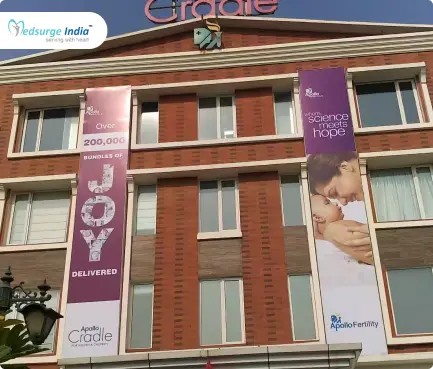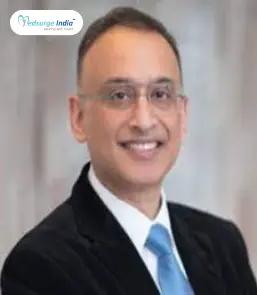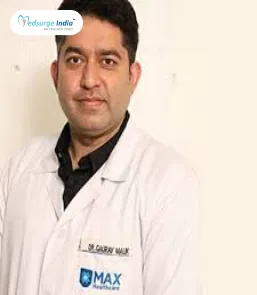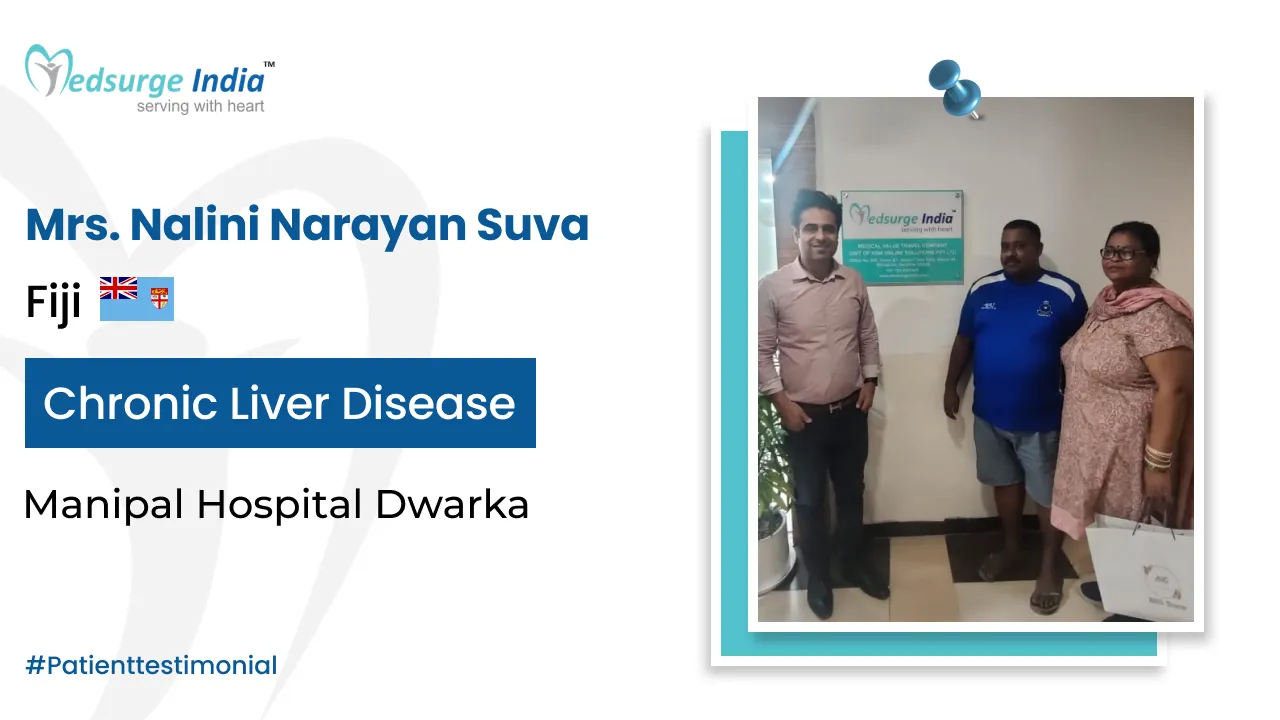
Dental Crown Treatment In India
A dental crown is a tooth-shaped cap used to replace a tooth that has become weak, decaying, fractured, or worn down. Moreover, crowns are used by dentists to cover root canal-treated teeth and dental implants. Crowns, which can be made of metal, porcelain, resin, or another material, can endure five to fifteen years if taken care of properly.
Dental Crown Treatment Cost in India
The average cost of dental crown treatment in India is between Rs. 20,800 to Rs. 50,000 (250 USD to 600 USD). This price typically includes a consultation with a prosthodontist, teeth cap material, technique of manufacturing, and treatment. However, please note that accommodation and transfers are not included in this cost.
Cost of Dental Crown Treatment in Different Cities in India
| Cities | Starting Cost In (USD) |
| Delhi | 250 USD |
| Mumbai | 300 USD |
| Kolkata | 300 USD |
| Hyderabad | 300 USD |
| Chennai | 350 USD |
| Gurgaon | 350 USD |
| Noida | 250 USD |
| Bangalore | 350 USD |
Please do keep in mind that this only applies to the procedure; other costs will be added to the total cost of Dental Crown treatment in India.
Factors That Can Affect Dental Crown Treatment Cost in India
There are various factors that can affect the cost of Dental Crown treatment in India. Your budget is greatly impacted by numerous elements that fail under pre and post-treatment costs. Following below are the various factors that can affect the cost of Dental Crown treatment in India.
- Medication costs: Certain medicines can influence the overall cost of Dental Crown treatment.
- Patient Condition: The complexity of the tooth along with the patient’s overall health can affect the duration of treatment, impacting the cost.
- Duration of treatment: Longer treatment courses involving multiple visits can lead to higher cumulative costs.
- Geographical location: Cost can vary widely depending on the region in India.
- Hospitalization expenses: The length of hospital stay and the level of nursing care required by the patient can add to the treatment expenses.
- Government policies and subsidies: Government healthcare schemes and subsidies can reduce out-of-pocket expenses for patients, affecting the affordability of Dental Crown treatment.
- Medical tourism packages: Curated packages for international patients can include various services at a bundled cost, influencing the overall expense of treatment in India.
- Hospital reputation and infrastructure: Prestigious hospitals with state-of-the-art facilities may charge more for their services.
- The expertise and experience of medical professionals: Dentists or prosthodontists with extensive experience and recognition often command higher fees, contributing to the treatment cost.
- The type and frequency of diagnostic procedures: Regular monitoring with advanced imaging and laboratory tests can increase treatment costs due to the high price of these diagnostic methods.
- The choice of treatment modality: Opting for newer or more advanced treatment options or precision medicine can be more expensive than traditional approaches.
What is A Dental Crown?
Dental crowns also referred to as “teeth caps,” are a prosthetic and restorative method for restoring the appearance and functionality of damaged or missing teeth.
Why Are Dental Crowns Necessary?
A dental crown may be necessary in various circumstances:
- To prevent the fracture of a weakened tooth, such as due to decay, and to stabilize a cracked tooth.
- To repair a tooth that has already fractured or has undergone significant wear.
- When there is minimal tooth structure remaining, a crown can be used to provide coverage and support To secure a dental bridge in its position.
- To conceal teeth that are misaligned or severely discolored.
- To cap a dental implant.
- To enhance the aesthetic appearance of a tooth or alter its overall look.
A crown can be utilized on primary (baby) teeth for children in order to achieve the following:
- Preserve a severely decayed tooth that cannot be restored with a filling.
- Safeguard the teeth of children who are prone to cavities, particularly if they struggle to maintain regular oral hygiene practices.
- Minimize the frequency of administering general anesthesia to children who are unable to fully cooperate with dental care due to their age, behavior, or medical background.
What Are The Types of Dental Crowns?
There is a wide range of dental crowns available, each with its own distinct characteristics. The selection of the most suitable crown for you is contingent upon your personal preferences and specific oral health requirements.
Also Read – Dental Bone Grafting Surgery Cost in India
Metal Crown
Dental professionals utilize various metals such as gold, palladium, nickel, and chromium to fabricate these crowns. Metal crowns possess exceptional durability, as they rarely chip or break, and exhibit the longest lifespan in terms of wear. Furthermore, they necessitate minimal removal of enamel and can effectively withstand the forces exerted during biting and chewing.
However, it is important to note that the metallic color of these crowns may be considered a significant drawback. Consequently, metal crowns are often recommended for molars that are not easily visible.
Porcelain-fused-to-metal crowns (PFM)
PFM crowns, or porcelain-fused-to-metal crowns, provide the durability of metal with the natural look of porcelain. While they can be customized to match your teeth, they may chip over time and wear down opposing enamel. Despite these drawbacks, PFM crowns are a durable option for restoring front and back teeth with a long-lasting, natural appearance.
Pressed ceramic crowns
Pressed ceramic crowns have a hard ceramic core, distinguishing them from PFM crowns which have a metal core. The core is created by melting and pressing ceramic at a high temperature, and then multiple layers of porcelain are added. Like all-porcelain crowns, pressed ceramic crowns mimic the natural translucency of tooth enamel. However, they share the same drawback as PFM crowns, as the ceramic layers can chip over time. Dentists use pressed ceramic crowns for both front and back teeth.
All-ceramic or porcelain crowns
All ceramic or porcelain crowns closely resemble the natural look of tooth enamel, surpassing other crown types in terms of appearance. Moreover, they are highly recommended for individuals with metal allergies.
Various materials are utilized by lab technicians to fabricate ceramic crowns, with zirconium dioxide being one of the most favored options. Zirconia crowns exhibit exceptional durability and can endure greater forces compared to other ceramic crown varieties. Additionally, they exert minimal pressure on the opposing teeth, resulting in reduced enamel wear.
All-resin crowns
Resin-based dental crowns are typically more affordable than alternative crown materials. However, they possess a higher susceptibility to breakage when compared to porcelain-fused-to-metal (PFM) crowns. Dentists commonly utilize resin for crafting temporary crowns, which typically have a lifespan of three to five years.
Same-Day Dental Crown
Dental professionals use CAD/CAM technology to make crowns in their clinics without delay. They capture digital impressions of your teeth and create a personalized crown. The image files are sent to a milling machine on-site, which carves the crown from a ceramic block. Same-day crowns are convenient, but not suitable for everyone. Consult your dentist to see if you are a suitable candidate.
How are Dental Crown Procedure Done?
The procedure’s timeline will vary based on whether your dentist chooses a multi-day or same-day approach.
Same-day procedure
Through a procedure completed within the same day, you have the option to bypass the temporary crown phase.
- The dentist will capture digital images of your mouth and utilize them to fabricate the crown on-site.
- The waiting time for the crown to be produced is approximately 1 to 2 hours.
- Once the crown is prepared, the dentist will affix it securely.
- The overall duration of the process typically ranges from 2 to 4 hours.
- Depending on your individual circumstances, you may even be able to return to work during the waiting period.
The multi-day procedure with a temporary crown
A visit to your dentist’s office is required twice for the placement of a traditional crown.
- The initial visit involves the examination and preparation of the tooth, which may include X-rays and taking a mold of your tooth or mouth.
- The outer layer of the tooth will be filed down and removed by the dentist.
- An impression of the trimmed tooth and surrounding teeth will be made, and a temporary crown will be placed to protect the tooth.
- The impression is then sent to a lab for the crown to be made, which can take several weeks.
- Finally, you will return for the second visit to have the crown cemented to your tooth by the dentist.
Not every dentist possesses the necessary technology to provide same-day crowns. It is advisable to inquire with your dentist regarding the availability of this option and the estimated cost, particularly if you lack dental insurance.
Why Choose India for Dental Crown Treatment?
India is one of the best healthcare service providers and provides the best treatment which is on par with other top countries. These are some reasons why international patients choose India as a top destination as per their budget and treatment.
- Complete treatment transparency.
- Have the greatest dental specialists.
- Known as the best according to international standards.
- Reasonable Price.
- Utilizing top-notch services to ensure infection-free status.
Why Medsurge India?
Medsurge India is a prestigious support system for patients looking for doctors, hospitals, and specialized treatments. We’ll find the most suitable medical options for you. Regarding your medical issues, our team will give you a list of certified, reputable, and trusted doctors and hospitals. Additionally, we offer a treatment strategy that fits your budget. Apart, we assist patients with obtaining travel authorizations, medical visas, and a multitude of other things.
Get Free Cost Estimation
The Most Important Frequently Asked Questions
Q: Is the Treatment for a Crown Permanent?
A: Dental crowns are a long-term treatment even if they are not permanent. A crown should last you anywhere from five to twenty years, on average. Maintaining proper oral hygiene is one of the things you can do to help your crown last longer.
Q: Which Dental Crown Is the Best?
A: Porcelain or all-ceramic crowns. Zirconia crowns are more resilient than other ceramic crown varieties, withstanding stresses up to twice as great. They also cause less enamel wear on your opposing teeth because they are mild on them.
Q: What Are the Disadvantages of Having Crowns?
A: Drawbacks with Dental Crowns
- covering untreated dental decayed regions.
- discomfort brought on by an incorrect fit.
- an elevated infection risk.
- increased susceptibility to temperature changes in food and drink.
- crown loosening or coming off.
Q:Do Crowns Frequently Fall Off?
A: Porcelain crowns are especially popular, and many do break loose and fall out with age. The majority of dentists believe that dental crowns typically last between 10 and 20 years.
Q: Can a Cavity Form in My Crown?
A: Since your crown is composed of a unique synthetic material, a cavity cannot form inside the crown itself. On the other hand, the tooth on which your crown is affixed may get a cavity.
Top Hospitals for Dental Crown Treatment in India
Top Doctors for Dental Treatment
Dr. Riddhi Rathi Seth
HOD
Experience: 12 years of experience
Nanavati Super Specialty Hospital Mumbai
Mumbai, India
Dr. Supriya Nambiar
Senior Consultant
Experience: 10+ years of experience
KMC Hospital, Hampankatta, Mangaluru
Mangaluru, India
Dr. J Jayanthi Jaya Sudha
Senior Consultant
Experience: 10+ years of experience
NH Rabindranath Tagore International Institute of Cardiac Sciences, Kolkata
Kolkata, India
Dr. Sonhita Chakraborty
Senior Consultant
Experience: 10+ years of experience
NH Rabindranath Tagore International Institute of Cardiac Sciences, Kolkata
Kolkata, India
Dr. Egammai Sethuraman
Consultant
Experience: 14 years of experience
Apollo Proton Cancer Centre, Chennai
Chennai, India
Dr. Adosh Lall
Senior Consultant
Experience: 21 years of experience
Indraprastha Apollo Hospital New Delhi
India, India
Dr. Ravi S. Batra
Consultant
Experience: 17 years of experience
Fortis Memorial Research Institute, Gurgaon
Gurgaon, India
Dr. Kshitij Dwivedi
Senior Consultant
Experience: 12+ years of experience
NH MMI Narayana Superspeciality Hospital, Lalpur, Raipur
Raipur, India
Dr. Rajesh Kumar Jha
Senior Consultant
Experience: 12+ years of experience
Rabindranath Tagore Surgical Centre, Hiland Park, Kolkata
Kolkata, India
Dr. Amrita Gogia
Consultant
Experience: 11 years of experience
Medanta – The Medicity, Gurgaon
New Delhi, India
Dr. Gaurav Malik
Experience: 20+ years of experience
Max Superspecialty Hospital, Mohali
Mohali, India
Dr. Hiralal Ash
Experience: 2024+ years of experience
NH Rabindranath Tagore International Institute of Cardiac Sciences, Kolkata
Kolkata, India
Dr. Swati Kejriwal
Senior Consultant
Experience: 15+ years of experience
Narayana Superspeciality Hospital, Shibpur, Howrah
Howrah, India
Dr. Girish K
Experience: 19+ years of experience
Narayana Multispeciality Hospital, R S Naidu Nagar, Mysore
Mysore, India
Dr. Rajni Sharma
Consultant
Experience: 12 years of experience
Fortis Memorial Research Institute, Gurgaon
Gurgaon, India
Prof. Dr. Nanda Kishore K M
Consultant
Experience: 15 years of experience
Sparsh Hospital (Yeshwanthpur) Bangalore
Bangalore, India
Dr. Subhankar Bandyopadhyay
Experience: 10+ years of experience
Rabindranath Tagore Surgical Centre, Hiland Park, Kolkata
Kolkata, India
Dr. Ateksha Bhardwaj
Consultant
Experience: 10 years of experience
Medanta – The Medicity, Gurgaon
Gurgaon, India









